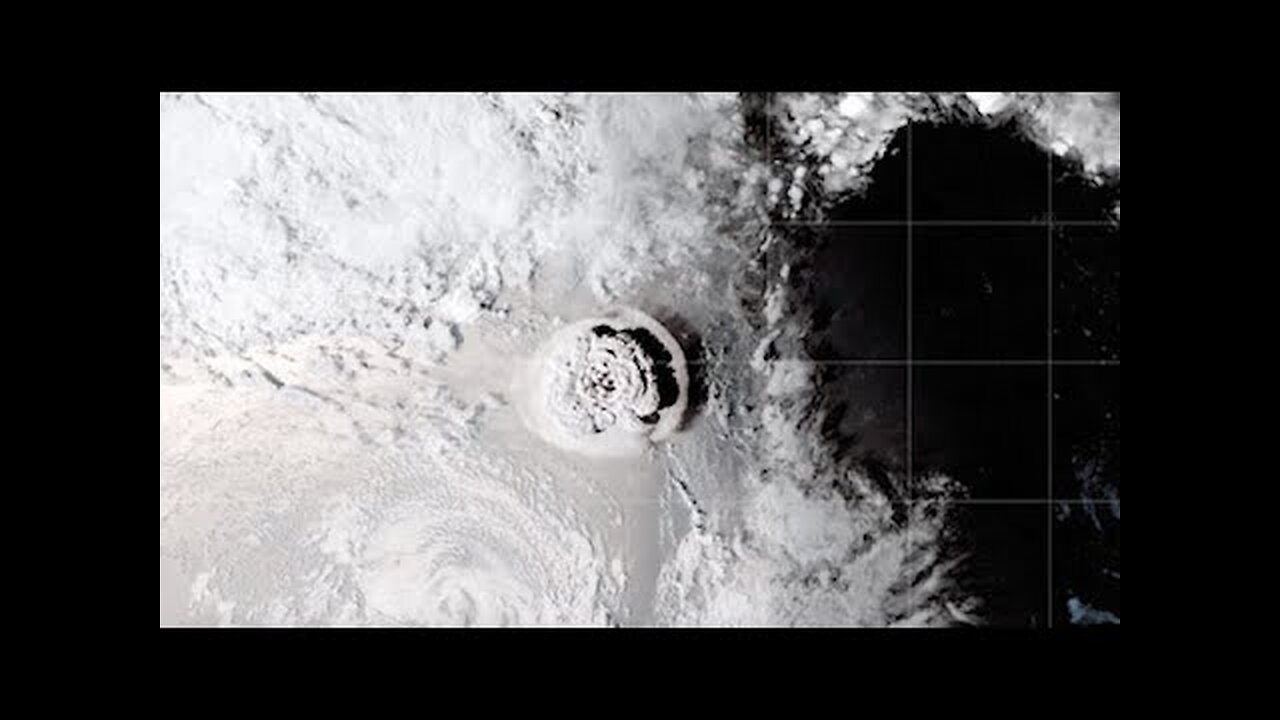Premium Only Content

How NASA Sees the Life Cycle of Volcanic Island Hunga Tonga-Hunga Ha’apai
When the Hunga Tonga-Hunga Ha’apai volcano erupted on Jan. 15, it sent a tsunami racing around the world and set off a sonic boom that circled the globe twice. The underwater eruption in the South Pacific Ocean also blasted an enormous plume of water vapor into Earth’s stratosphere – enough to fill more than 58,000 Olympic-size swimming pools. The sheer amount of water vapor could be enough to temporarily affect Earth’s global average temperature. So outside of its sheer magnitude, what makes this eruption so unique? Well, it’s really a matter of our ability to see it through NASA and ESA satellites. Music credit: “Color Chart” and “Bright Horizons” from Universal Production Music Credit: NASA's Goddard Space Flight Center Emily Watkins (GSFC Interns): Lead Producer Kathleen Gaeta(GSFC AIMMS): Producer Dr. James Garvin (NASA Chief Scientist Goddard): Lead Scientist This video can be freely shared and downloaded at https://svs.gsfc.nasa.gov/14214. While the video in its entirety can be shared without permission, the music and some individual imagery may have been obtained through permission and may not be excised or remixed in other products. Specific details on such imagery may be found here: https://svs.gsfc.nasa.gov/14214. For more information on NASA’s media guidelines, visit https://www.nasa.gov/multimedia/guidelines/index.html. If you liked this video, subscribe to the NASA Goddard YouTube channel:
-
 1:22:44
1:22:44
Michael Franzese
1 day agoWill Trump’s Win Finally Convince Democrats to Stop The Woke Nonsense??
155K117 -
 8:27:07
8:27:07
MDGgamin
15 hours ago🔴LIVE- Rumble Gaming To The MOON - Variety of Games & Chatting - #RumbleTakeover
136K5 -
 27:24
27:24
Mr. Build It
5 days agoDECK DISASTER! How We Fixed a Botched Build
105K15 -
 26:58
26:58
barstoolsports
16 hours agoZach Bryan Blocks All of Barstool | Stool Scenes
117K16 -
 1:06:44
1:06:44
Talk Nerdy 2 Us
1 day ago🔥 Hackers vs. The World: From Amazon breaches to FBI-confirmed Chinese telecom spying
108K22 -
 1:24:20
1:24:20
Vigilant News Network
1 day agoJoe Rogan Drops Shocking Election Claim | The Daily Dose
170K179 -
 1:10:18
1:10:18
FamilyFriendlyGaming
1 day ago $19.19 earnedCat Quest III Episode 2
139K -
 20:07
20:07
DeVory Darkins
1 day ago $23.97 earned"They Talking About Finance!" The View FRUSTRATED by NYC Mayor TRUTH BOMB
105K106 -
 1:20:18
1:20:18
Steve-O's Wild Ride! Podcast
2 days ago $13.26 earnedThe Hawk Tuah Girl Is Really Becoming Successful! - Wild Ride #243
79.9K6 -
 1:29:26
1:29:26
Game On!
1 day ago $11.82 earnedJon Jones vs Stipe Miocic Heavyweight Title Fight | UFC 309 Preview
74K7